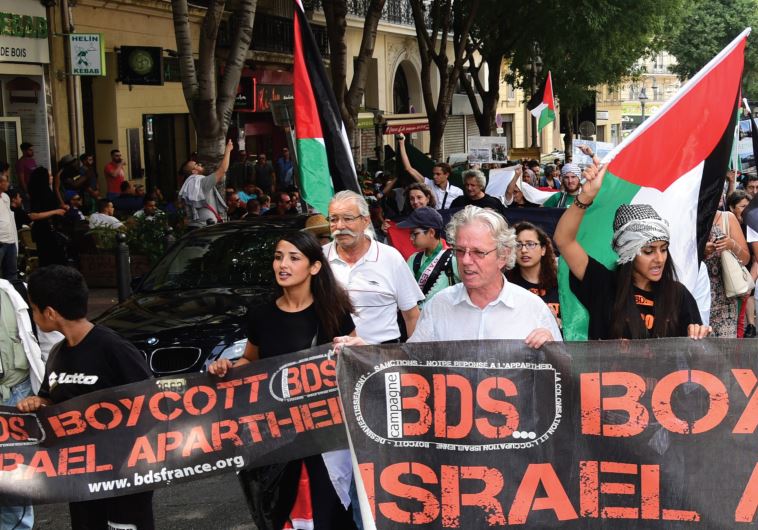Demand BDS justify its goals
Let’s offer the proponents of BDS the opportunity to provide new and more reasonable justifications.
 Anti-Israel demonstrators march behind a banner of the BDS organization in Marseille, June 13.(photo credit: GEORGES ROBERT / AFP)
Anti-Israel demonstrators march behind a banner of the BDS organization in Marseille, June 13.(photo credit: GEORGES ROBERT / AFP)